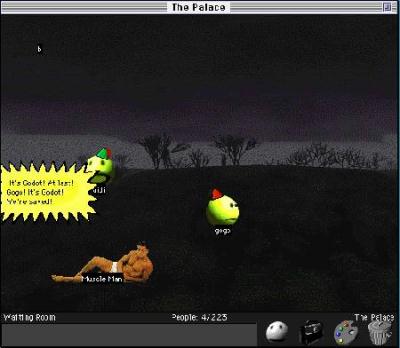
“Skin:Surface, Substance + Design” will open at the Smithsonian’s Cooper-Hewitt, National Design Museum on May 7,2002, and continue through September 1 5,2002.“Skin” highlights the responses of designers from around the world to a culture obsessed with physical appearances and transformed by biotechnology. The exhibition focuses on works designed between 1997 and the present and features products, fashion, furniture, architecture and media that are expanding the conventional definition of surface.
Every object has a skin.Thick or thin, smooth or rough,porous or impermeable, skin is the line between a hidden interior and a visible exterior. Reflecting the convergence of natural and artificial life,“Skin ” demonstrates how designers today manipulate the relationship between the inside and outside of objects, garments and buildings to create surfaces that both reveal and conceal:skins that have depth,complexity and their own behaviors and identities.“‘Skin ’ shows the breadth of design thinking today,which encompasses the engineering of new structures as well as the fabrication of seductive forms and metaphors,” Museum Director Paul Warwick Thompson notes.“The exhibition is smart, sexy and provocative.” The rise of digital media over the past decade has changed the practice of design,providing tools for making objects and buildings that resemble living creatures — with complex curves and soft, responsive surfaces —but remain distinctly artificial. “Skin” features the work of such notable designers and architects as Greg Lynn, Petra Blaisse, Morphosis, Ross Lovegrove, Marcel Wanders and many others. The exhibition shows how enhanced and simulated skins are found throughout contemporary life, from clothing, products and buildings to our own living skins.
Informationen: hier

Our first Desktop Theater production was an adaptation and performance of Samuel Beckett's well-known drama "Waiting for Godot" in an internet chat environment.
> Estragon Lower left S/ï-5 Default faceA compression of Guy deBord's Situationist manifesto The Society of the Spectacle performed by and for the spectacled society.Vladimir enters. E: )sigh Nothing to be done. V: )sigh I'm beginning to come round to that opinion. All my life I've tried to put it from me, saying, Vladimir, be reasonable, you haven't tried everything. And I resumed the struggle. So there you are again.
Two Avs whispering over din of Palace goingson Av1: Separation perfected Av2: Illusion only is sacred Av1: Truth profane Av2: Illusion only is sacred Av1: Truth profaneQuicktime Movie der Aufführung: hier
Habe gerade meinen Schreibtisch aufgeräumt. Post weggemacht. Dabei ungefähr acht dot.companies (deutsch), die mir ihre Avatare, 3D-Assistenten, Virtual Friends herzlichst empfehlen (Beispiel: virtual friends. Meine erste Reaktion, wie immer häufiger: Wann wird das endlich aufhören? Meine zweite Reaktion sind Fragen: Was bedeutet das? Sagt mir das, dass das Internet noch immer nicht "angekommen" ist - ansonsten würde man es nicht immer noch in die Metaphern der Vor-Internet-Welt (Figuren, die dich an die Hand nehmen, dir alles zeigen, dir die Schwellenangst nehmen etc) übersetzen? Oder sagt es mir: Dass das Netz jetzt endgültig "da" ist - weil es so funktioniert wie die Vor-Netz-Welt - als "lass mal, wir drücken dir schon rein, was du wissen willst, wir zeigen dir alles, du musst selbst gar nichts machen, du brauchst nicht zu suchen, wir sagen dir nämlich, was du finden sollst"-Welt? Ist eine Technologie DA, wenn sie herunterreduziert ist? Oder ist eine Technologie da, wenn genügend Leute gelernt haben, was sie an Neuem ermöglicht? Am tragikomischsten finde ich ja die Versuche mancher Internet-Magazine, das Netz als eine Art Fernsehen vorzuführen und deswegen auf das Konzept der Internet-Programmzeitschrift zu setzen ("die nächsten 14 Tage Internet"). Aber vielleicht haben die ja sogar recht. Oder sind das nur die Versuche der Grossen, zu retten, was zu retten ist? Indem man den Menschen einredet, das Neue wäre nur more of the same old shit? Weiß auch nicht. Kann darüber mal jemand nachdenken? Vielleicht besteht Avantgarde ja heutzutage genau darin, das Neue kleinzukriegen aufs Alte?